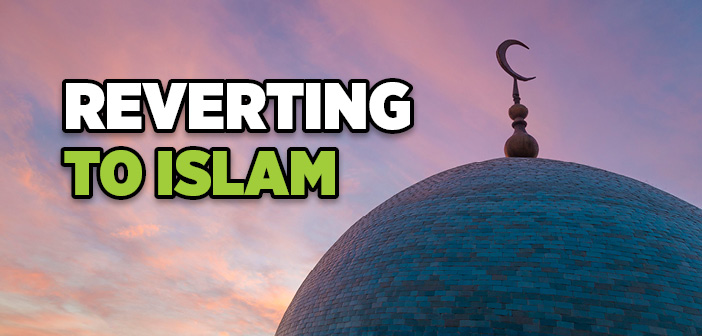What is generosity?
The Companions used to say that the Prophet was more generous than the wind.[1] If he was asked to give something of what he had, the Prophet never hesitated to offer it,[2] and was known to never say ‘no’.[3] He did not hesitate to share his food, clothes and knowledge. Generosity means to be able to share. It is the ability to share love, compassion, knowledge, and wealth. Allah states; “They give food to the poor, the orphan, and the captive, though they love it themselves, saying, ‘We feed you for the sake of Allah alone: We seek neither recompense nor thanks from you. We fear the Day of our Lord–a woefully grim Day.’ So Allah will save them from the woes of that Day, give them radiance and gladness.”[4] If a person spends their wealth in order to gain fame, honor, position and prestige, this does not count as generosity. Such expenditure can only cause harm to the one who spends it rather than bring him or her blessings. The Prophet (peace and blessings be upon him), describes the state of affairs of those who spend without considering Allah, may He be glorified and exalted, as; “…Then will be brought a man whom Allah had made abundantly rich and had granted every kind of wealth. He will be brought forward and God will make him recount His blessings and he will recount them and (admit having enjoyed them in his lifetime). Allah will (then) ask: What have you done (to requite these blessings)? He will say: I spent money on every cause, which You wished that it should be spent. Allah will say: You are lying. You did (so) that it might be said about (You): ‘He is a generous fellow’ and so it was said. Then God will pass orders and he will be dragged with his face downward and thrown into Hell.”[5] A generous person should give charity for the sake of Allah alone and should not expect any repayment. Moreover, a Muslim should not shame the person to whom he or she provides aid, since, whenever the Prophet helped the needy he was very careful not to hurt their feelings or belittle them.[6] The Prophet (peace and blessings be upon him) said; “The similitude of a miserly man and the giver of charity is that of two persons with coats of mail over them; when the giver of charity intends to give charity, it expands over him (so much so) that the footprints are also obliterated. And when the miserly man intends to give charity, it contracts over him, and his hands are tied up to his collar bone, and every ring is fixed up to another.”[7]
Allah Almighty encourages generosity and praises it as a virtue, however, at the same time He discourages extravagance and wastefulness; He asks his human beings to adopt the middle path in all their actions and avoid being people of extremes. In the Qur’an he says; “They are those who are neither wasteful nor niggardly when they spend, but keep to a just balance.”[8] The Prophet (peace and blessings be upon him) went as far as outlining a criteria for being generous by saying; “Eat, drink, clothe yourselves, and give charity without being extravagant, and without showing off.”[9] However, in the case of a dire need of society, it is permitted to donate more, for instance, the Prophet praised this attitude as a virtue, when Abu Bakr donated all of his wealth, and Umar (may Allah be pleased with them both) went onto donate half of his wealth.[10] Generosity has no limit; it can be petite or vast, even showing sensitivity towards another person is a form of generosity.[11] In the same line of thought, the Prophet (peace and blessings be upon him), warned the Muslims against the extreme forms of stinginess that is greediness, by supplicating; “O God! I seek refuge with You from miserliness; and I seek refuge with You from cowardice; and seek refuge with You from being sent back to geriatric old age; and I seek refuge with You from the affliction of this world; and I seek refuge with You from the punishment of the grave.”[12] A miserly individual is a narcissistic person; always thinking of himself or herself first and searching for happiness in materialism and wealth. The Prophet said; “Miserliness and faith cannot reside in one’s heart at the same time.”[13] A Muslim should never forget that all wealth belongs to Allah alone and He can give it to whomsoever He likes, and He can take it away from whomsoever He dislikes.[14] The Prophet said; “Generosity is close to God, close to Paradise, close to the people and far from the Fire. Stinginess is far from God, far from Paradise, far from the people and close to the Fire. The ignorant generous person is more beloved to God than the worshiping stingy person.”[15]
[1]. Sahih al-Bukhari, al-Bad’ al-Wahy, 1[2]. Ibn Hanbal, I, 326.[3]Sahih Muslim, al-Fadaʾil, 56.[4]. Q. 76:8-11.[5]. Sahih Muslim, al-Imara, 152.[6Sahih al-Bukhari, Fard al-Hums, 7.[7]. Sahih Muslim, al-Zakat, 77.[8]. Q. 25:67.[9] Al-Nasai, al-Zakat, 66.[10]. Sunan al-Tirmidhī, al-Manaqib, 16.[11]. Sunan al-Tirmidhī, al-Zuhd, 17.[12]. Sahih al-Bukhari, al-Da’avat, 37.[13]. Al-Nasai, al-Jihad, 8.[14]. Q. 3:26.[15]. Sunan al-Tirmidhī, al-Birr, 40.
Source: Islam For New Muslims An Educational Guide,Assoc. Prof. Amjad M. Hussain, Erkam Publications





